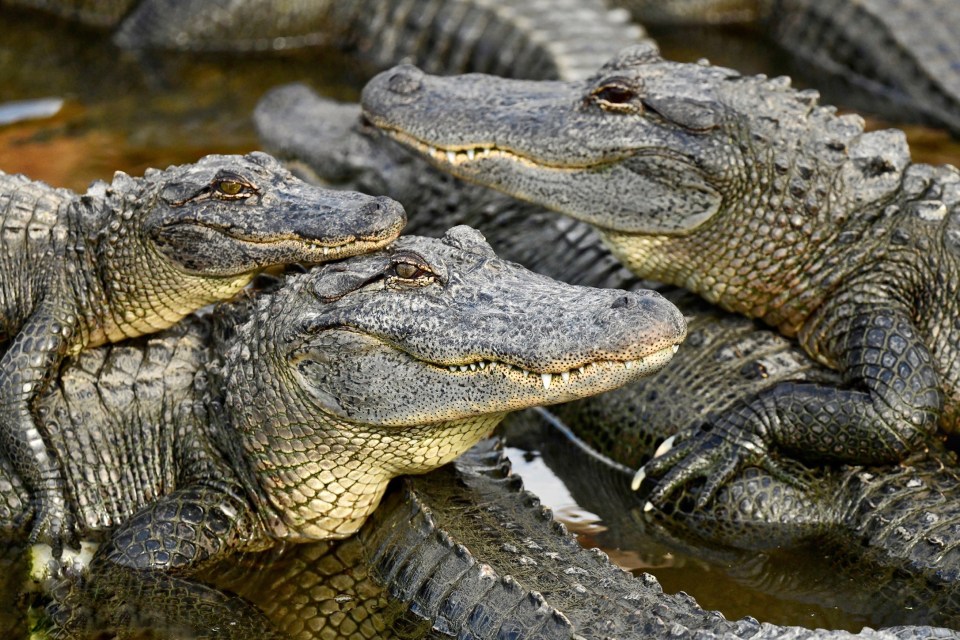A GROUP of more than 3,000 crocodiles got triggered into a mass sexy orgy after hearing the sound of helicopters flying overhead.
The male residents of a crocodile farm in Queensland, Australia, were all riled up for mating after a bunch of low-flying Chinooks flew over them.
GettyA group of 3,000 crocodiles have been triggered into a mass sex frenzy[/caption]
GettyThe saltwater beasts started mating like mad after a bunch of Chinook helicopters flew over them[/caption]
It appears they may have mistaken the whirring blades of the military helicopters for the start of their mating season.
Speaking to ABC News, John Lever, the owner of the Koorana Crocodile farm, said: “All of the big males got up and roared and bellowed up at the sky, and then after the helicopters left they mated like mad.”
While experts are not fully sure what triggered these beasts into a frenzy, they suggest the helicopters may have sounded like thunderstorms to the crocodiles.
October and November are the spring months in Australia – and the ideal mating season for crocodiles.
Thunderstorms are quite common during these months, and the saltwater beasts get all hot and turned on for mating in such conditions, the experts added.
It is also understood that mating during the stormy season gives the hatchlings a better chance at survival, since the eggs would hatch when the conditions are less severe.
Speaking to Live Science, expert Mark O’Shea said: “Usually, mating is a seasonal thing because [crocodiles] want to coincide with the best time to lay their eggs in a burrow or nest.”
The Chinook’s blades may have changed the biometric pressure of the area, mimicking a storm.
And coupled with the aircraft’s roar and thumping vibrations, it might have triggered the male beasts to start producing more offspring.
Regardless of the reason, the female crocs are not all set to lay eggs over the next few months.
These soon-to-be mum reptiles will use soil and rotting vegetables to incubate their eggs – and will be fiercely protective over their eggs until they hatch safely.

